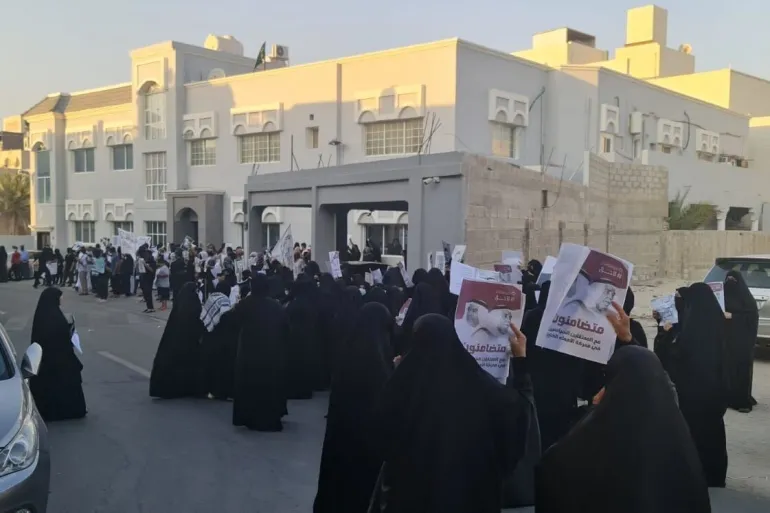The Jau Prison hunger strike has entered its fourth week, with 804 prisoners now confirmed to be on strike against harsh prison conditions, making it the biggest strike in Bahrain’s prison history. The strike has continued to gain momentum, with the total number of participants doubling since the start of the protest.
-
- View BIRD’s list which includes 804 prisoners’ names broken down by buildings.
Negotiations have been underway recently between Bahraini officials and striking inmates. However, authorities remain unwilling to meet the prisoners’ core demands.
Yesterday, 28 August, Bahrain’s Interior Minister met with officials and government-controlled oversight bodies, who had been in discussions with the prisoners, in which he “praised the professional and humanitarian performance of the NIHR, the Ombudswoman Office, and the PDRC” and “reviewed the recommendations included in the reports of their recent visits to the Reform and Rehabilitation Centre [Jau]”.
According to the Interior Ministry statement, authorities pledged to review:
-
- Duration of visits and terms for the visitor list;
- Outdoor time;
- Telephone call tariff;
However, instead of meeting prisoners’ demands, authorities have escalated repressive measures. Yesterday, it was revealed that by order of the prison director, Hisham Al-Zayani, the police handcuffed striking prisoners from behind while they were being transported to the clinic.
BIRD spoke to a number of prisoners following the Interior Ministry’s statement who made it clear that they believe that the deal was not worth the paper it’s written on, and they will continue the strike until their demands are met.
On Sunday, 27 August, prisoners stated that political prisoners from six cells were permitted two hours outside their cells together, instead of three cells that were allowed only one hour previously. This minor concession was considered insufficient by prisoners as it continues to discriminate between political and non-political prisoners, who are entitled to 12 hours outside their cells and demand equal treatment.
The Interior Ministry further claimed it “register[ed] 180 inmates in postgraduate programmes in various majors for this year.” However, as confirmed through prisoner testimony, this did not include a single political prisoner.
Sayed Ahmed Alwadaei, Advocacy Director of the Bahrain Institute for Rights and Democracy (BIRD) commented:
“The government has still failed to understand the momentum and gravity of this strike, from the prisoners to the streets. Based on conversations with prisoners following the Interior Ministry statement, it is clear that the hunger strike will continue until the government addresses their concerns seriously and in good faith.
In their action, this strike has forced the government to discuss the rights of prisoners and dominated the debate in the country, further leading to questions about why so many political prisoners remain behind bars after a decade of struggle.
If the government fails to reach a deal or if a prisoner dies, the situation may escalate beyond control”
Pressure has been maintained on Bahraini authorities to facilitate a swift resolution as protesters took to the streets on Friday in various cities in Bahrain, including outside the home of imprisoned opposition leader and Bahrain’s oldest political prisoner Hasan Mushaima.
-
- See more details in BIRD’s press release.
On Saturday, 26 August, 79 Bahraini nationals sent an appeal to Bahrain’s Crown Prince expressing support for the demands of the political prisoners on hunger strike in Jau Prison, adding that “[they] believe that genuine reform necessitates the resolution of the issue of political detention by releasing those involved in peaceful activities advocating democratic change.”




